
The spring sunshine casts a copper glimmer over the quiet and lush Ribble Valley hills while a crisp breeze gently rocks vast blankets of ancient oak and ash, shaking the moorland heather left in its wake.
This untarnished, verdant landscape hints at temptations within its borders, but while stalwarts such as the Yorkshire Dales and the Lake District have been adept at grabbing the attention of the tourist crowds, Lancashire has been simmering, maturing.
Now, it seems, its power has been unleashed. At various times synonymous with cotton mills, witch trials and hotpot, more recently its soul-soothing serenity and natural wonders have been inspiring a band of sustainability-centred creators and chefs.
Respecting the land, sourcing seasonally, locally and ethically, minimising waste and ensuring produce is grown and reared in a responsible manner – this is the Lancashire way. Today’s focus is firmly on the future, and ensuring the next generations can enjoy it too.
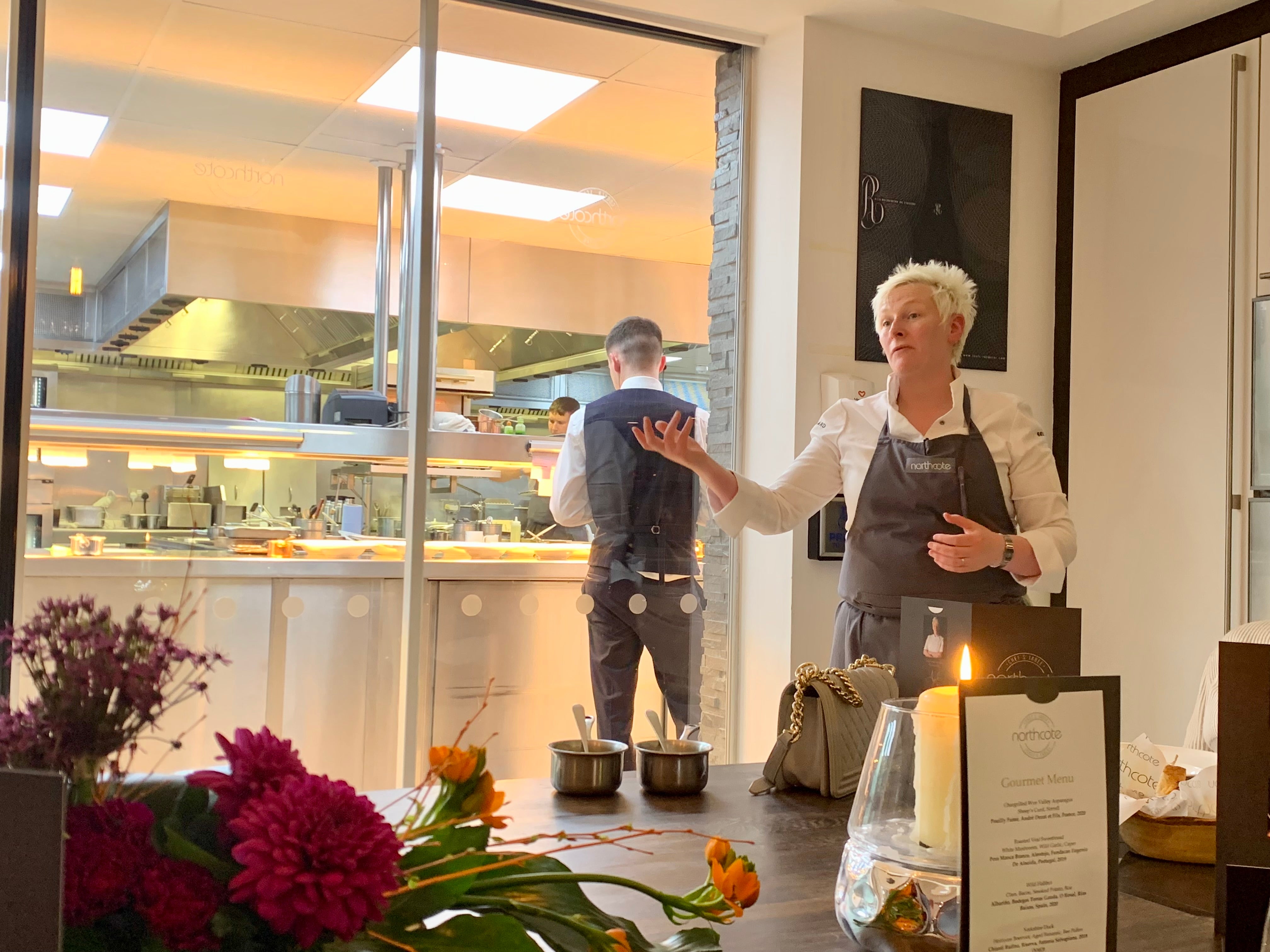
Shining a light on this ethos is esteemed hotel Northcote, proud holder of a Michelin star since 1996, with 18 of those years under the expert guidance of Lisa Goodwin-Allen, the now-executive chef who was just 23 when she became head chef.
In the kitchen, an environmentally friendly focus governs every step, from sourcing produce to reusing waste. Goodwin-Allen visits every supplier personally, ensuring they share her vision. “The connection with your supplier is really important,” she says. “We always look into where ingredients have been grown or reared. Anything that’s reared outdoors on wild food is ultimately getting a better feed. It’s better for the land and it’s better for the taste.”
At Northcote, I try Goodwin-Allen’s five-course Spring Gourmet menu, which uses duck from a Yorkshire family-run butchers’ firm whose animals and birds are outdoors-reared, grass-fed and free-range. The asparagus in the first course comes from a supplier in nearby Nelson. It’s planted and picked by hand, then taken in baskets to the packhouse, where it’s sorted while still fresh. Beef for the delightful tiny taco canapes comes from Lake District Farmers, who champion Cumbrian fell farming on biodiverse pastures.
“We take a lot of our staff out to visit these farms too,” adds Goodwin-Allen. “I stick them all in the back of what I call our Vengabus and off we go. It gives them so much more enthusiasm and respect.”
Anything that’s reared outdoors on wild food is ultimately getting a better feed. It’s better for the land and it’s better for the taste
Buying seasonally not only ensures great quality; it leads to less wastage. Goodwin-Allen says: “We use every bit of it. You’re avoiding waste but it also impacts flavour. And taking what’s in abundance makes you think outside the box, too. Sometimes it’s wacky and wonderful because you get an ingredient, draw a circle and think, what can that go with it? It can end up completely different to what you had in mind before.”
Sirloin steaks arrive whole on the bone; the bones are used in stocks or consommé, the trimmings in meatballs for the lunch menu. Even fat is removed, rendered in a pan then used in other ways, perhaps smoked, frozen then grated back over the dish for more flavour. With herbs, the tops are used to make a green oil or a pesto, the stalks for mayonnaise and creams – like the tarragon emulsion that accompanies my duck course.
For the dessert, rhubarb is served in multiple ways to use every bit. Even the strings are either juiced or infused into syrups. “It’s good to teach the younger ones in the kitchen how to use up by-products so they take doing that for granted,” she adds.
As they prepare the evening gourmet menu for 75 covers, I watch the chefs at work – all 19 of them – from the Chef’s Table that runs alongside the kitchen, a coveted seat at the culinary boxing ring. I can sense the passion they nurture their food with. It’s strangely reassuring that they feel there’s nothing to hide, and rather exhilarating to feel you’re privy to scenes you shouldn’t be.
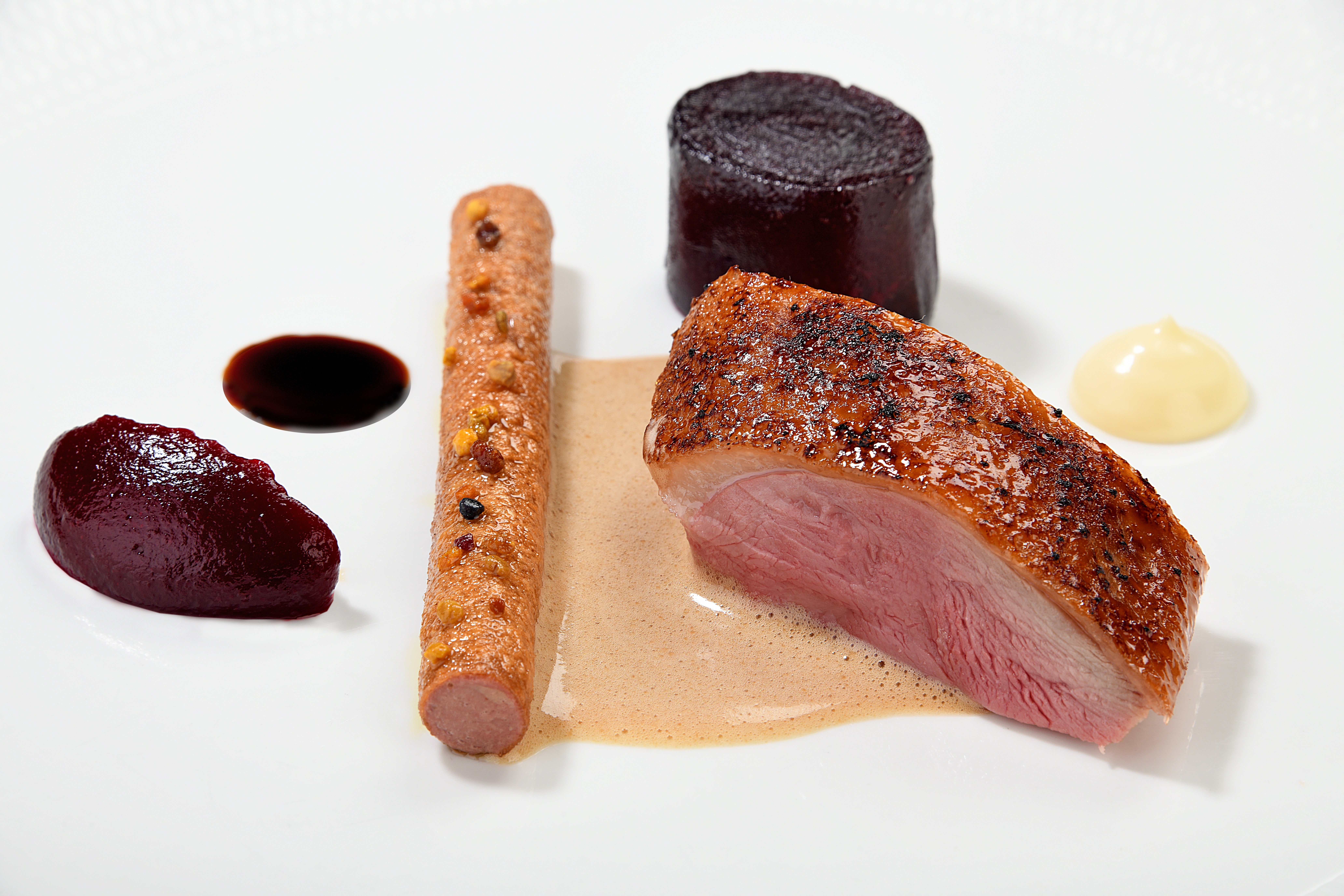
After an overnight stay in the grand yet relaxed hotel, sensitively expanded from an 18th-century manor house, I find I don’t have to venture far to find a Herculean haul of Lancashire folk who share Goodwin-Allen’s passion for provenance.
I visit TOTI in Little Eccleston, a small deli with big ambitions to replicate the food served in its onsite sister hotel, the Cartford Inn, so that diners can take home a taste of the restaurant.
When owners Julie and Patrick Beaume say they source ingredients locally, they mean it. The deli sells fresh wild garlic pesto foraged by the chef the day before (it’s absolute heaven), while the lamb they use comes from the sheep farm across the road.
At Wild Fox Distillery, Lizzie and Rob Billington pledge to avoid waste and protect the countryside when making their gins. Up to 72 per cent of the botanicals are grown on the family dairy farm in Inglewhite. Biomass technology – burning forest waste – heats the distillery, and water is sourced from a borehole. Excess water from each distillation is given to the cows.
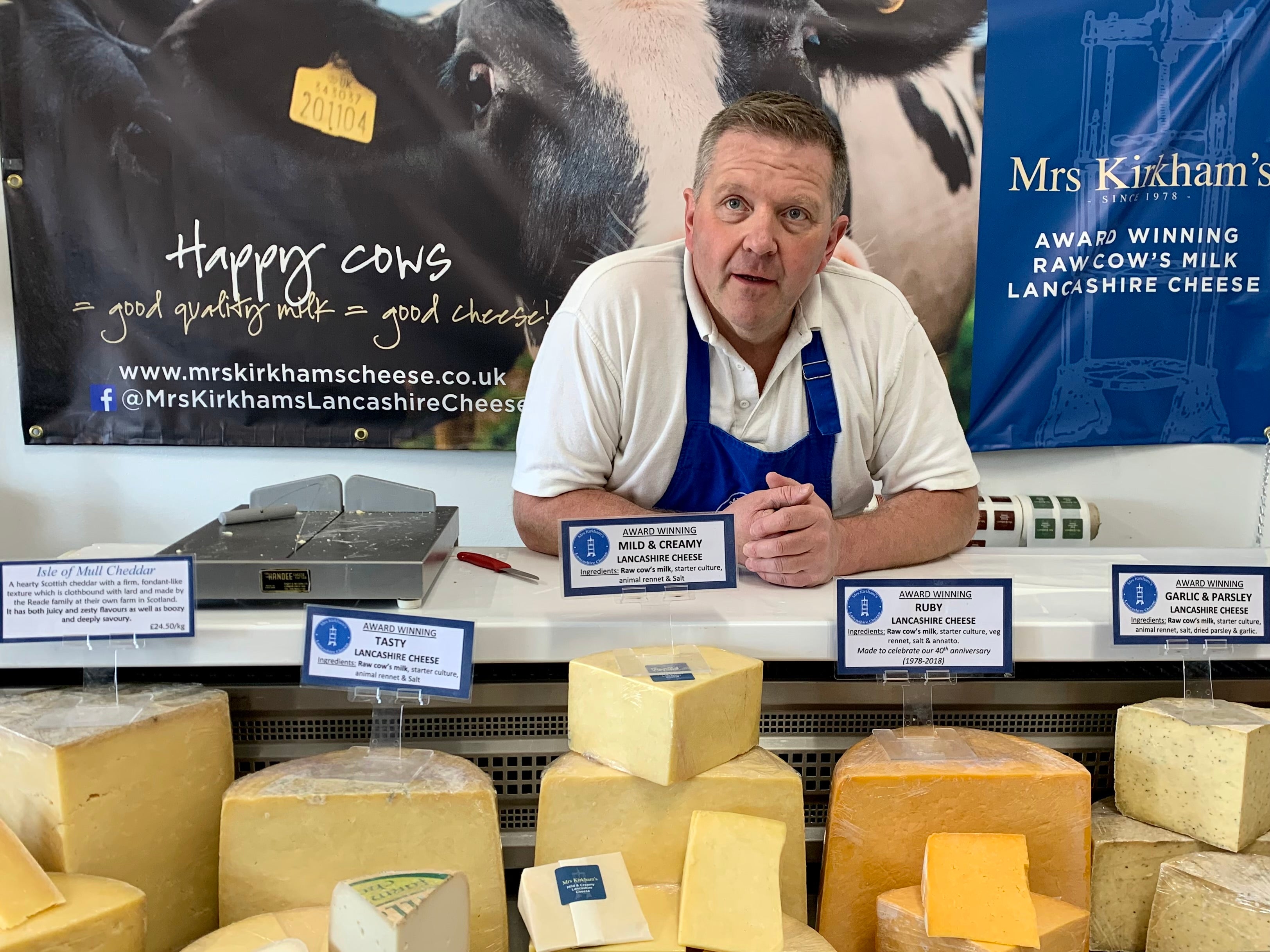
Down the road, Richard and Rachel Trenchard have been approached by large retailers to sell their award-winning gins, but are determined to stick with farm shops, delis and independent merchants. “It’s the passion for gin and the love of the area – not the money,” says Richard Trenchard. “The independents share our ethos.”
I also pop into the small farm shop at Mrs Kirkham’s Cheese to taste the county’s last unpasteurised Lancashire cheeses, said to produce a better flavour and texture. Graham Kirkham’s Holstein Friesians, who produce the milk for it, graze in fields around us.
“With raw milk, there’s nowhere to hide,” says Kirkham. “What you feed to cows ends up on the shelves. I’m relying on the quality of the landscape.”
These people put their heart in their homeland – they’re not looking for that M&S contract
The visits are part of a tour that champions Lancashire’s artisans. “These people put their heart in their homeland,” says Katie Wilson who runs Bowland and Bay’s micro-tourism adventures. “They’re not looking for that M&S contract. They’re passionate about what they do, they care about Lancashire and they want to do it the right way using resources responsibly. These guys know this land only has so much capacity, so they have to look after it. They’re building for their kids.”
Keen cyclist Wilson struck on the idea of bespoke tours after noting the vast number of independent ice cream shops while out on rides during Covid restrictions. She now has around 150 artisan producers lined up, and facilitates the tours in her nine-man mini-bus to avoid individuals making multiple car trips.
I ask her why Lancashire has proved so fastidious at nurturing independent, sustainability-minded entrepreneurs. “Perhaps it comes from the cotton mills or farming, but the Lancastrian people are very hardworking and not afraid of having a go,” she says. “Plus the quality of the provenance here is exceptional.”
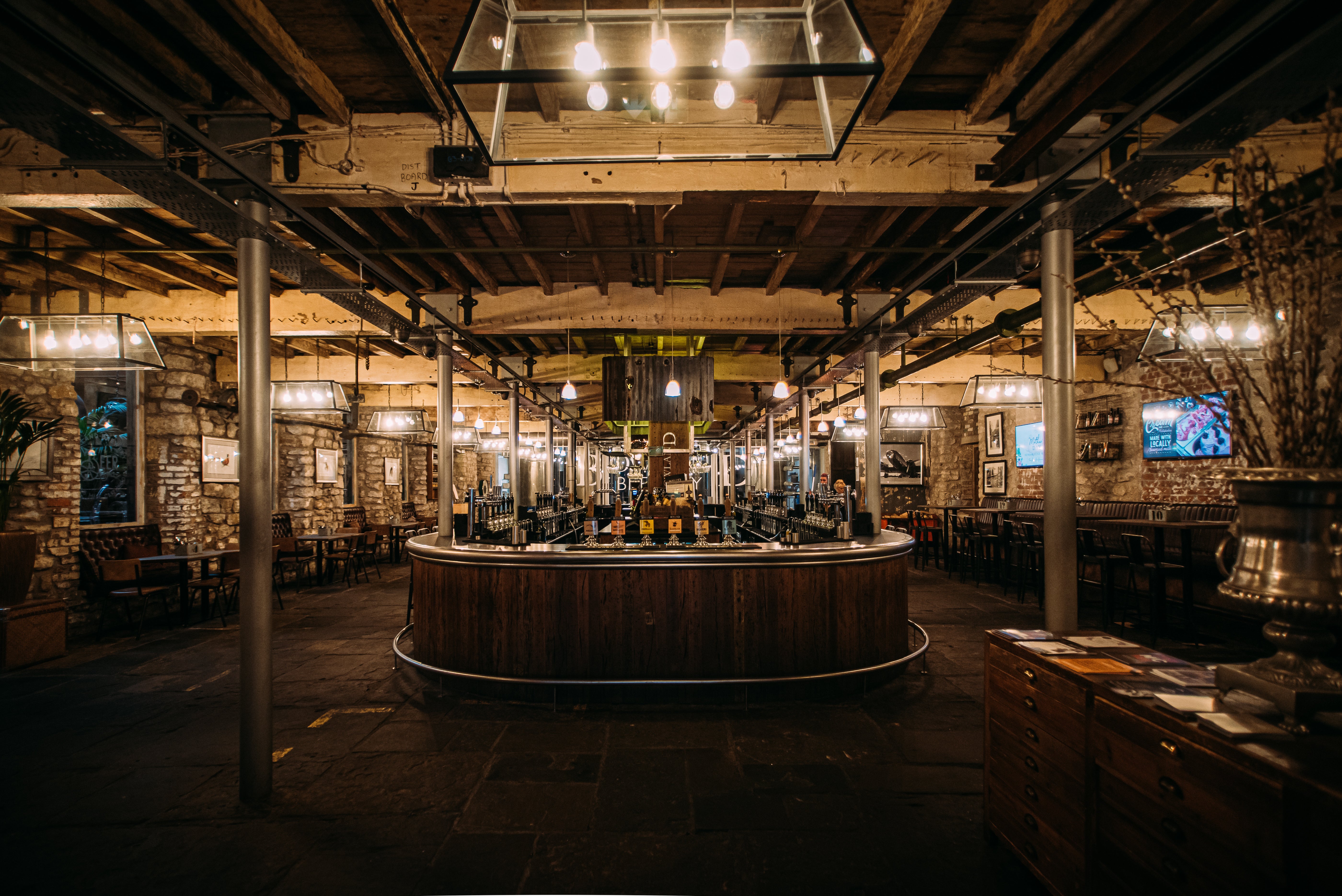
Later, I head off to Clitheroe and to its smart Holmes Mill food hall, described by manager Alison Ashworth as “a coming together of artisans”. Beautifully converted from the town’s last working cotton mill, it’s a treasure trove of local meat, seafood, fresh produce and deli offerings.
Pork comes from a Todmorden farm, which rears native breeds slowly in the open, while pies, with delightfully sounding fillings like coq au vin and lamb bhuna, are made by a pub landlord who diversified during lockdown. Also stocked is cheese made of milk from a Lancashire herd of buffalo.
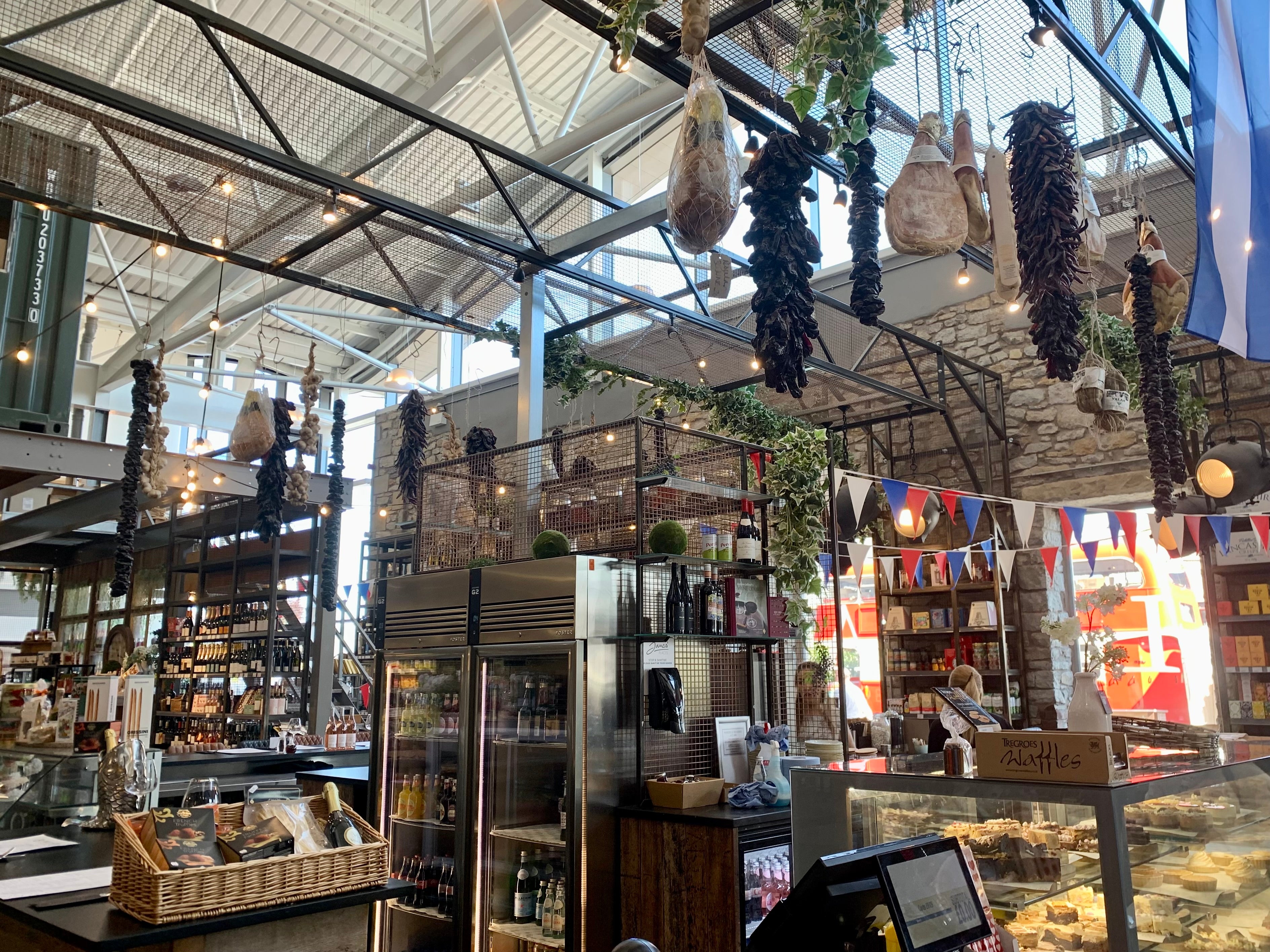
At Bowland Brewery next door, the spent grain left over from brewing goes to a local dairy farmer to feed his cows, and the milk they produce is then used throughout Holmes Mill, including in their ice cream. The Brewery has also just set up its own beehive to produce honey for its popular Bumble honey beer.
I try a few of their beers, poured regally from one of the 42 gleaming hand pulls in the onsite beer hall. The verdict? Like so many other experiences, they’re worth staying a little longer in Lancs for.
Travel essentials
A night at Northcote including breakfast, a five-course Gourmet Menu and an artisan food adventure with Bowland and Bay, costs from £575 for two.
For more information go to visitlancashire.com







